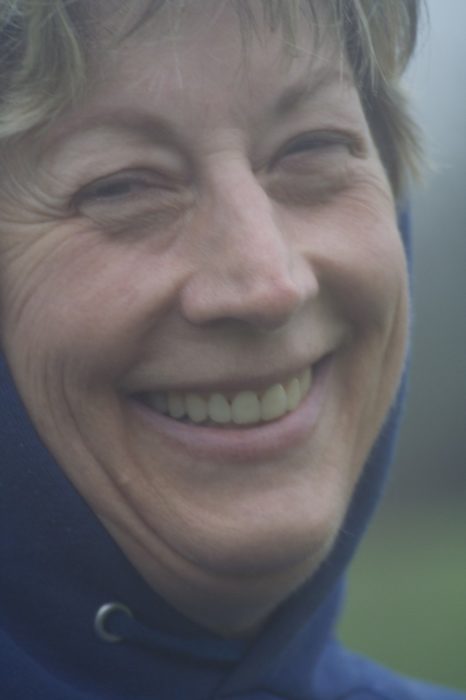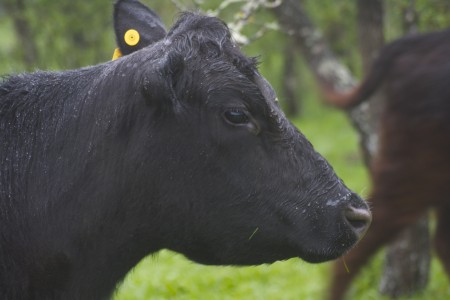Mary-Rose and Lefty Fisher’s farm, Rancho benedicion de Dios (translated Blessing of God Ranch), was awash in a much-needed rainstorm last week. Texan’s don’t mind the inconvenience of flooded streets when rain brings a break in the Texas drought. And on the day that I visited Mary-Rose in March, her pastures were green and the Black Angus cattle stood out, rivulets of water trickling down their big steamy bodies. As bovines are wont to do, they were ruminating after pulling at the green grass that would soon rebound after these spring rains.
But their black cattle were also looking afield, searching for their newborn calves, a common addition to their herd during March. Already this year they have five new calves, each cossetted behind thistles and other low-growing shrubs. The ranch raises about 20 cattle, all Black Angus. But these newborns represent a new initiative on the ranch. This year, the Fishers leased a Wagyu bull, a cattle breed, literally “Japanese cattle,” that has been associated with the Kobe region of Japan. Up to 25% of a Wagyu steak is unsaturated fat, marbled throughout the meat. The meat is extremely tender, flavorful, and possibly the “foie gras” of the beef world. By crossing the Wagyu bull with their Black Angus cattle, Mary-Rose and Lefty hope to produce an even more flavorful, tender meat product in the next few years.

Experimentation is nothing new for these ranchers who just started raising cattle in 2003. When the Fishers purchased their ranch, they had to reclaim the soil in preparation for organic certification. Today they produce organically raised grass finished cattle. Their Wagyu-Angus project along with their organic practices, make their ranch a small and carefully managed enterprise. Their customers, individuals and a local resort scoop up their beef products, evidence that they’re on to a good thing. Both Mary-Rose and her husband are reassuring evidence that new ranchers don’t require a long pedigree to enter these niche markets. Both are not native Texans and have come from other careers. By reaching out to other ranchers, reading, and observing how ranches operate, they have been able to begin a small and innovative beef ranch. The Rancho benedicion de Dios, may just be the model for a new breed of farmers that wants to innovate, stay small, while selling to a market that is willing to be patient, pay higher prices, and appreciate locally raised, organic meat, called by Fishers, “Holy Organic Beef™”

Author